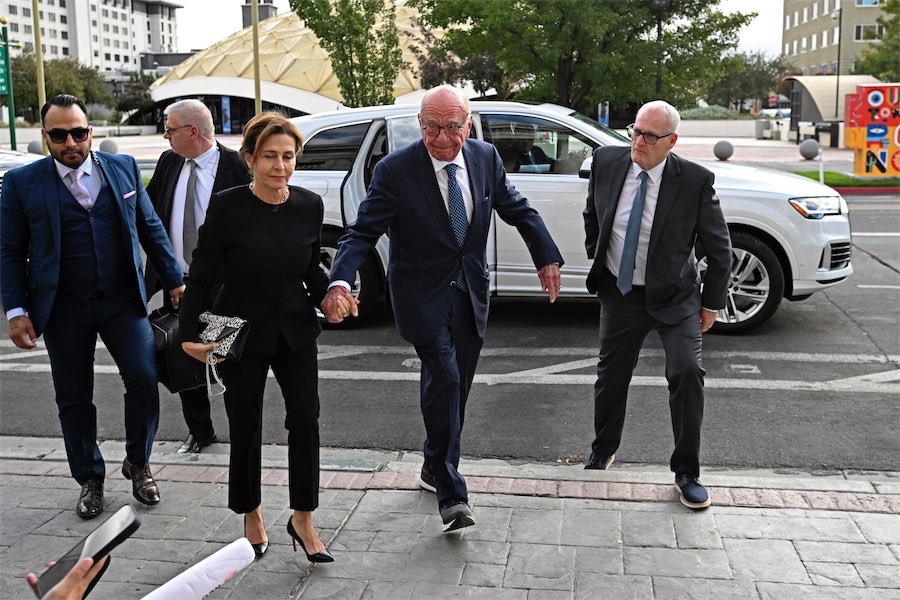
As we edge towards the October 14 referendum, “CityNews” readers continue to want to be heard on any decision to enshrine an indigenous Voice in the constitution.
AT the Canberra Walk for Yes, as a visitor from Melbourne, I was impressed by the positivity and tolerance.

One “No” voter with a placard bravely walked through the assembled gathering and was not jeered but greeted with the good-natured chant, “Yes! Yes! Yes!”
One speaker reminded the crowd not to confuse the hesitation of undecided voters with not caring.
But most memorable were the words of Ngunnawal Elder Aunty Violet Sheridan, who said: “This isn’t a political matter, it’s a matter of respect, equity and human rights.”
Well may we heed these messages.
Ray Peck, Hawthorn, Victoria
People don’t like being lectured to
I NOTE that Eric Hunter seems to have increased his promotion of a “yes” vote in various media of late.
We all know what his view is, but his constant reiterations, like Albanese and many yes campaigners, are probably counter productive. People, in general, do not like being lectured to and are now either tuning off or going to ground. They just want the whole business behind them and for the government to get on to cost of living and other important issues.
I fear that people like Mr Hunter are actually fuelling a “no” vote.
In one of the first letters I wrote on this subject I said that a “yes” vote should be a fait accompli. It appears that Albanese and his fellow travellers, including Qantas, have now turned it into a disaster with a little help from Dutton.
After making his view plain for all to see, Albanese should have then turned the issue over to people like Noel Pearson and other indigenous leaders to lead, along with government assistance.
Now it looks very much like we are promoting a Canberra Voice. Certainly, Mr Hunter has turned my own yes vote into a maybe.
Ric Hingee, Duffy
Contrition never affects comfortable lifestyles
Re the article “Senator’s colonisation comments and betrayal” (citynews.com.au, August 17), where a historian was quoted as saying that British colonisation was “one of the greatest land grabs in history and the beginning of a catastrophe”.
If some people get a perverse pleasure out of wallowing in a theory of inherited racial guilt over what has happened in Australia since 1788, and if they are determined to ignore the colossal attempts that have been made for years to assist indigenous people, then why are they still living here?
Why haven’t they long ago gone and sold everything they have, given the proceeds to their indigenous friends, and emigrated from the country of which they think they are such unworthy inhabitants?
At least their consciences would be clear; at least they would have set the example for others to follow; at least they could spend the rest of their lives weeping their hearts out in repentance and shame on some distant shore, such as Antarctica. How is it that their supposed contrition never interferes with their own comfortable lifestyles?
Malcolm Brandon, via email
‘No’ campaigners calm and measured
CAROLE Ford (Letters, CN September 14) says the object of the Voice is to unite the nation and that the “No” campaign employs threats of land grabs and radical activism.
Let’s just have a look at what people on the “Yes” campaign have stated: Thomas Mayo, who sits on the PM’s Referendum Working Group only two years ago said the Voice would strip away land rights from ordinary Australians and force them to pay reparation to indigenous people. He also describes the Voice as a campaign tool to “punish politicians, abolish colonial institutions”, as well as saying, “there is nothing that we can do that is more powerful than building a First Nations’ voice, a black institution, a black political force to be reckoned with.”
“Yes” campaigner Marcia Langton has labelled Senator Jacinta Price and her mother, a former cabinet minister in NT, “coloured help” and stated “Australia is a horrible, racist country”. Noel Pearson has virtually called Price a right-wing redneck. Pearson and others like him have tuned down their hate speech as they know the “Yes” vote is struggling and opting now for a softly, softly approach. Australians are not dumb and will not fall for this sudden change of attitude.
Compare the indigenous “No” campaigners, who are articulate, calm and measured, such as Jacinta Price and Warren Mundine to the “Yes” campaigners Mayo, Pearson and Langton, who are filled with hate and bile.
Ian Pilsner, Weston
Abrogating a principle on discrimination
ARTICLE 1 of the “International Convention on the Elimination of All Forms of Racial Discrimination”, which came into force in 1969 and which Australia ratified and subsequently folded into the still-current Racial Discrimination Act 1975, states that: “Special measures taken for the sole purpose of securing adequate advancement of certain racial groups… shall not be deemed racial discrimination… provided, however, that such measures do not, as a consequence, lead to the maintenance of separate rights for different racial groups and they shall not be continued after the objectives for which they were taken have been achieved.”
This was pointed out by me in letters to a number of newspapers in April (“The Canberra Times” elected not to publish) and subsequently in a published article by Peter Baldwin, the former Labor left-wing MP.
I am yet to see any argument from a “Yes” proponent as to why this long-established and universally-recognised principle should be abrogated.
How does supporting a principle that is enshrined in an Act of parliament and designed to avoid perpetual racial discrimination infringe upon concepts of “honour, civility, and a responsibility to others”?
William Reid, Crace
It’s the chassis that needs the help
AGAINST the deserved widespread empathy for indigenous people, may I use an analogy? I take my car to be fixed because there are serious problems with the chassis/undercarriage only – requiring urgent attention/repair.
I’d therefore be very disappointed if the mechanic told me he would concentrate on changes to the engine. Chassis/undercarriage examples are well known deficiencies that can be fixed (and arguably should have been fixed by now) by all right-minded governments. The engine, of course, is the constitution.
Colliss Parrett, Barton
Who can be trusted?
In a world of spin and confusion, there’s never been a more important time to support independent journalism in Canberra.
If you trust our work online and want to enforce the power of independent voices, I invite you to make a small contribution.
Every dollar of support is invested back into our journalism to help keep citynews.com.au strong and free.
Thank you,
Ian Meikle, editor





Leave a Reply